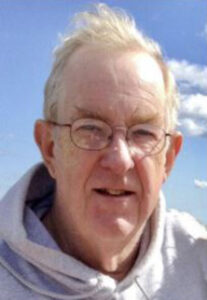This blog wasn’t meant to be a April Fool’s day piece but the more I look at it, it might suffice. Sorry it’s a couple of weeks late!
For most engineers, words are usually a more or less “get-R-done” proposition. As an engineer, then, I may be a bit weird in that I really pride myself in pronouncing an using words correctly whenever possible. In writing the recent blog about passivation, I realized that a number of words we commonly use in the context of industrial cleaning are subject to mislead scrutiny even by supposed authorities. It was quite a surprise, for example, when Word Press (the program I use to write the blog) insisted that I use the word passivization which according to all other sources doesn’t exist. As I started to write this blog, I approached it with a rather “smug” attitude assuming that I would simply do a little research and find that my pronunciation and usage of a few industry-related words would be supported by my references thereby vindicating me and those who agree with me. Well, that fantasy went down on the first word I looked up which was “piezoelectric.”
For piezoelectric I have always said pee-zo-elec-trick. WRONG! The correct pronunciation according to all the references I checked and if you are an engineer is pie-e-zo-elec-trick. If you’re really into the phonetic thing or are a reference librarian, then it’s pahy-ee-zoh-i-lek-trik. In any event, the word apparently deserves six syllables, not five as I had always believed. So much for my smug attitude.
The next word on my list was magnetostrictive. I have heard this word pronounced mag-knee-toe-re-stric-tive and mag-no-stric-tive on untold occasions. Research revealed that my pronunciation, mag-knee-toe-stric-tive, although nearly close enough for jazz wasn’t quite what it should be either. The word is more correctly pronounced mag-nee-tuh-strik-tiv. The only difference is in the third syllable where I’ve always said “toe” instead of the correct “tuh.” I personally think “toe” is better but will try to overcome my instinct in the future.
That brings us to rarefaction and, would you believe it, another losing score for me! I have always said rare-fac-tion but have heard others say rare-frac-tion. Well, in a slight vindication for me, at least rare-frac-tion is wrong but rare-fac-tion isn’t right either. The correct pronunciation is rare-a-faction or, for those out there who speak “reference librarian,” rair-uh-fak-shuhn. Oh well!
At that point I decided I’d better stop in the interest of leaving my self-confidence at least partially intact based on the assumption that what I don’t know I’m doing wrong won’t bug me. But, since I do have space for a few more words left to round out this blog, there are a couple other works that deserve mention.
My friend and colleague Bill Puskas, who could easily plaster a wall with patent plaques he has earned in his lifetime prefers that his name be pronounced push-kosh. Those of us who know and respect Bill and tolerate his somewhat eccentric habits (what have you found in the third floor refrigerator lately?) probably say his name right most of the time at least when we actually use his last name (seldom). But, I can but imagine the telemarketer who comes across “Puskas” and wonders “what the hell?” Maybe that’s why he doesn’t get many telemarketing calls? Or maybe it’s that he’s never home!
Finally, and I promise this is the last one – – The word “irrespective” does exist irrespective of any claims to the contrary you may have heard. I don’t know why so many people have such a “thing” about this word but by all means, and irrespective of their wishes, let’s keep it alive!
OH, and be sure to use the word “Dude” as often as possible. It makes you sound really cool and Californian.
– FJF –

 Water – De-ionized – Hints
Water – De-ionized – Hints  A Fond Farewell to John Fuchs
A Fond Farewell to John Fuchs  Millipore Testing – Evaluation by Particle Counting
Millipore Testing – Evaluation by Particle Counting  Tape Test for Cleaning Revisited
Tape Test for Cleaning Revisited